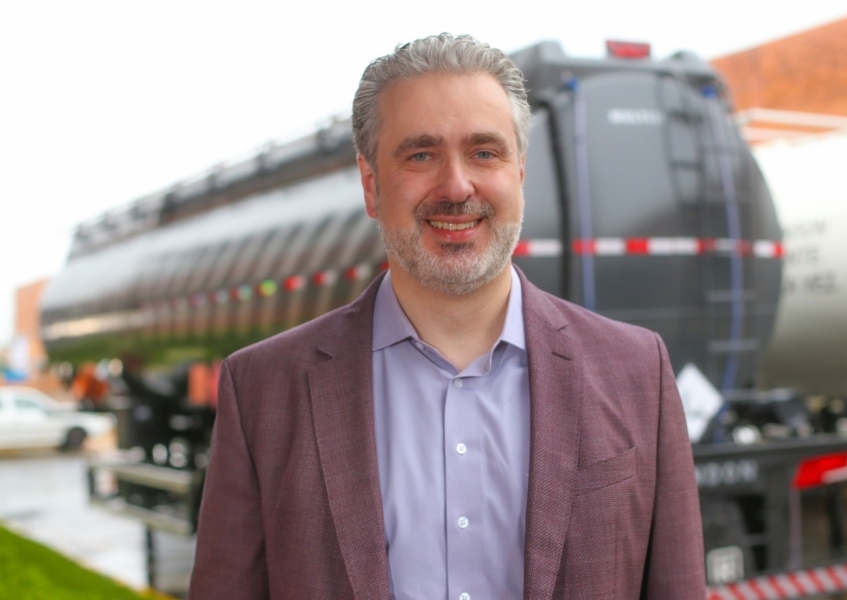
Pointed out by some of the icons of Brazilian industry as one of the most promising business leaders in the country today, the president of Randoncorp, Daniel Randon, does not shy away when asked about how he feels about the reputation he has achieved among his peers: “Their generosity , but I’m flattered”, he responds, provoked by Reputation Feed. Daniel is the fifth and youngest son of Raul Randon – one of the founders of the company that was born in Serra Gaúcha 75 years ago, today operates globally in transport solutions and is the largest manufacturer of semi-trailers in the country.
“Looking at our reputation depends, first and foremost, on continuing to be an innovative company, which brings sustainable projects and promotes an increasingly better work environment, in which people feel good, which grows and continues to support social and improving governance.”
Graduated in mechanical engineering and with an MBA in Finance Management from University of Chicago (USA), Daniel has worked in the most diverse areas in his over 20 years of experience at the company. In 2019, he took over as president and CEO, succeeding his brother David, who now heads the board of directors. In 2022, as part of a professionalization plan designed in 2015, providing for the separation of top management positions, Daniel separated himself from his role as CEO, remaining as president. Sérgio L. Carvalho, then director of operations and vice-president, was chosen as CEO.
Without having to manage the company's day-to-day operations, Daniel gained quality time to play a more institutional role and guardian of the speed of internationalization and the company's ESG and innovation agendas. All strategic niches for the group's growth and, notably, themes that shine in the eyes of the businessman. He is also dedicated to participating in development-oriented entities and national initiatives, such as the Competitive Brazil Movement (MBC), and, at the beginning of the year, he has gone to Davos, Switzerland, where leaders from around the world discuss the problems and future of the planet at the World Economic Forum. “I believe we will have a good year in 2024, but still challenging”, he estimates, regarding the macro scenario, especially for Brazil.
A Randoncorp employs around 16 thousand employees, had revenues of R$ 11.2 billion in 2022, has 32 factories, 10 distribution centers, three advanced technology units and products present in more than 120 countries. Its main brands are Randon, Frasle Mobility, Jost, Suspensys, Master, Castertech, CTR, Nione, Auttom, Randon Consórcios, Banco Randon, Randon Seguros, Randon Ventures, Addiante, Conexo and DB.
Daniel gave this interview at Randoncorp's headquarters, in Caxias do Sul, the city where he lives with his wife, Sandra, and three children, Maria Eduarda, Marco Antônio and Francesco, and maintains a strong bond with the community. Below, check out the main excerpts from the conversation that gives a little insight into how this business journey, with its choices and decisions, impacted the company's reputation and Daniel's reputation as a leader.
In your opinion, how important is intentional reputation management for organizations? Why?
Reputation is walk the talk, in other words, there is no point in saying that you do this or that and not demonstrating it or, in another case, saying that you don't do something and ending up doing it. Organizations no longer fail just because of cash flow problems, they can also fail if their reputation is damaged.
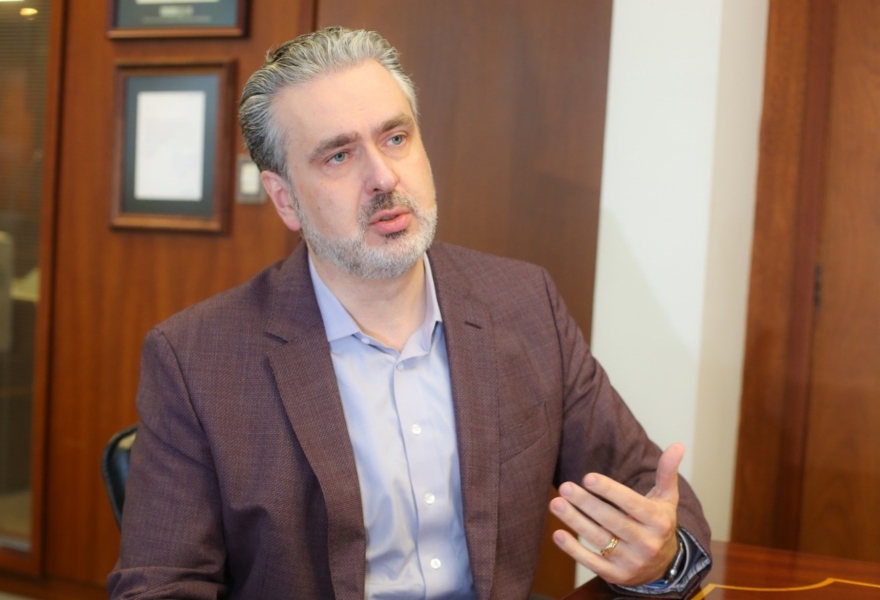
In this sense, what initiatives have been implemented and what are the results, in general, so far?
Our big challenge is to maintain the values, principles and legacy of the company's 75-year history, created by my father and uncle. In 2016, for example, we were experiencing a difficult macroeconomic moment, in which the market was around 1/3 smaller, and we realized that we needed to have our companies more engaged to overcome the crisis. What did we do? We took advantage of the moment to reinforce our values, as engagement is achieved when people understand the values and principles of the organization and when they are clear about where the company wants to go. We also showed that we had that hiking trail. Furthermore, in 2018, we developed our purpose, which is “Connecting people and wealth, generating prosperity”. In other words, the purpose goes far beyond transport solutions, our core, expanding a range of business opportunities and engagement for our employees, who I call protagonists.
What opportunities opened up from this positioning?
ESG Ambition is one of them. The plan, launched in 2021, establishes points that challenge our leaders to seek, for example, a 40% reduction in greenhouse gases. We also proposed to eliminate the disposal of products in landfills, in addition to, by 2025, starting to rely on the full reuse of 100% of recycled water. The goal of doubling the number of female leaders by 2025 is also part of this ambition. These are projects that engage people to work. This does not mean that we started ESG just now.
Vapt-vupt
What should be the greatest value for a company?
People.
An idol, a role model:
My father. Sometimes, we talk about an idol that we only know from books, and there's nothing like meeting the idol in your own home. I was always inspired by him. He was an entrepreneur. He left a legacy and values that are here: respect for people and society, helping others, doing things well, with quality and simplicity. That was my father.
Book you recommend:
What I'm currently reading. And the 2041: how Artificial Intelligence will change your life in the coming decades, by Kai-Fu Lee and Chen Qiufan.
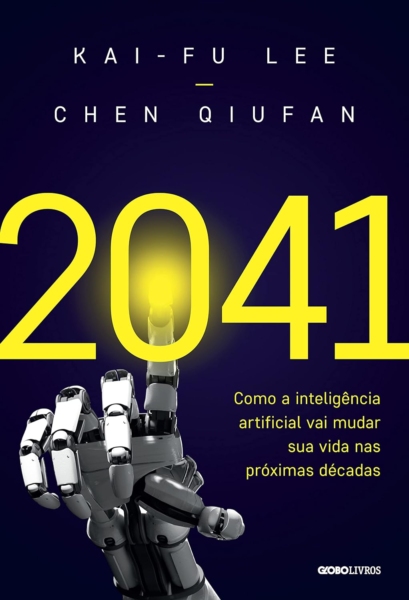
We started ESG through governance in the 1970s when we went public. And my father was always concerned about the social aspect. It is a constant evolution, but the purpose of the organization helps to reinforce these ambitions and expand the range of activities in which we operate.
When you talk about expanding the range of activities, do you mean new areas of activity?
We started working with new nanoniobium technologies for use in paints and other products and, in this opportunity, we were looking for a cream to protect welders from welding rays, which can eventually be harmful if they are emitted in large quantities and for a long time. . From this challenge, we created a cosmetic and started working with a startup with this objective. It doesn't mean that Randoncorp will continue producing cosmetics, but it saw an opportunity and a need that would serve our purpose. When we talk about reducing greenhouse gas emissions by 2030 by 40%, this means planning and work that leaders and employees are doing to achieve this goal. And it has helped. Frasle, for example, is investing in a biomass boiler, which, individually, will already contribute to reaching the target before 2030. In this case, it is a company, but we are focused on the entire corporation. This also proves that, the moment you leave the day to day life and present challenges, people will look for them. I have been to Davos in recent years and have witnessed the concern surrounding the commitment to a zero-carbon global economy by 2050. There is an assessment that it will be difficult to meet the target. But I'm optimistic. I believe that the disruptive technologies that are emerging and the adoption of policies in many countries will contribute (to achieve the goal).
“The moment you go public and define your ESG ambition, it is worth more than any bonus or other goal, because it is about reputation. We are putting our reputation and that of our leaders, including mine, at the forefront.”
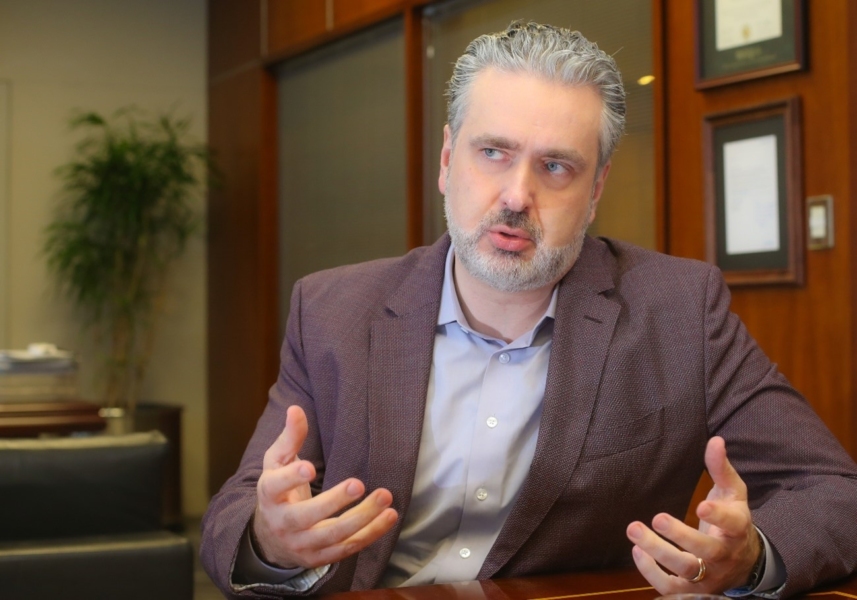
What are the group's results in relation to these actions so far?
The moment you go public and define your ESG ambition, it is worth more than any bonus or other goal, because it is about reputation. We are putting our reputation and that of our leaders, including mine, at the forefront. We are a large team, which works day to day, monitors and measures. The idea is to increase the carbon footprint portfolio. We developed a railway shoe for a client in which we managed to reduce carbon emissions by around 43% compared to the current model. We will do this not only with products, but with suppliers as well. In the Automotive and New Mobility group, a group of CEOs and presidents of global automakers that I participate in, we discussed the need to ensure that the production process of electric cars and trucks is entirely sustainable, from the extraction of lithium or other components that go in the battery for disposal until recycling. The laws already define this, and, for a long time, I have said that whoever produces it is responsible for the final disposal. From 2006 to 2014, I was in the Frasle operation and there we sold to some customers in a region, then collected and disposed of them. In other words, with zero impact on the environment. By reducing waste, in addition to solving the customer's problem, you have a more loyal customer. Several customers are already looking for our newly launched electric auxiliary axle. Some want it because they provide services to customers who already demand a reduction in the impact of CO2 emissions, others because they already have an electric truck and need a greater range, and there are those who want to test it.
What are the company's priorities in reputation management?
In 2016, we carried out a diagnosis to check how we were being seen and what we needed to improve. One of these points was to make this company even more innovative, but in the sense of being more agile, more horizontal and promoting intrapreneurship in organizations. This reinforced the idea that, looking at our reputation, it depends, first and foremost, on continuing to be an innovative company, which brings sustainable projects and promotes an increasingly better work environment, in which people feel good, which grows and continues to support social projects and improved governance. Simply put, our support points are mainly ESG and the protagonists of Randoncorp.
How does Randoncorp manage to reconcile growth with attention to its surroundings and the communities in which it operates?
Society, people, stakeholders see that Randoncorp works with social concern. My father always had this vision. In fact, he had the idea that the government should play its role, but also that it is the responsibility of businesspeople to contribute to society. Furthermore, he believed that investing in young people and children is the country's future. Until 20 years ago, this belief was not institutionalized in an organized way, gaining more structuring from the Institute Elizabetha Randon, focused on various social projects, but mainly those related to youth education and traffic education. Many actions were born from this, including the Bloomsr, a specific project for children, as well as others aimed at promoting traffic safety, health and sport. In recent years, we started monitoring the main demands of the places where we are. Often, this means sitting down with our community neighbors, finding out and meeting their demands regarding our impact.
It is common for entrepreneurs from large companies to establish residence in the main economic centers of the country or even abroad. With the Randon family, it's not like that. Does the decision for the whole family to continue living in Caxias do Sul have to do with being closer to the company's headquarters?
I play with our partners from Helic Instituteand (initiative of a group of organizations to develop an innovation ecosystem in Serra Gaúcha) that, if there is Silicon Valley, we have Galeto and Polenta Valley! But now, no jokes. We have a great quality of life, the region is quiet, safe and has calmer traffic. This is the assessment of many executives who lived in São Paulo or other large cities that we brought here. We encourage our children to study abroad, but we cannot forget where we were born and we continue with the vision that this continues to be our home, the place to which we will always return.
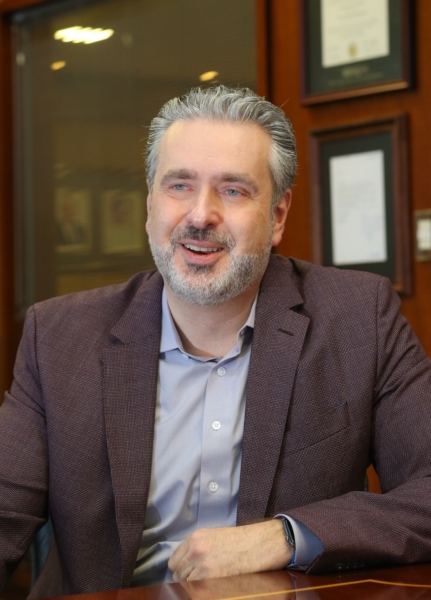
You yourself lived abroad for a while, in Chicago, and then returned. Was it a way to develop leadership?
Long before that, at 16, I thought I was too young to go to university and I decided to study in England and Italy, a year before finishing my final year of school, to mature and get to know different cultures. When I returned, I participated in a youth group and was president of the Red Cross, in Caxias do Sul, in my early 20s. I have always been very involved in these activities, partly to help, partly as an opportunity to learn how to be a leader. You don't have to wait to join a business organization to be a leader. During my engineering course, I did internships at Master and Gerdau. After graduating, I worked in the financial area of Randoncorp until taking over the São Paulo business unit, where I completed a turnaround before going to Chicago to do my MBA with the aim of improving myself.
It was a decision that was greatly supported by my father and my brothers, even so that, upon returning from the United States, I could help with the governance and leadership of Randoncorp. It was a very good challenge. Today, we have universities in Brazil that are fantastic examples. The only differences from living abroad, perhaps, are the culture, learning a language and networking a little differently. When I returned, I first worked in the financial area of Frasle, until I assumed the superintendence and position of CEO at the company.
What should the leader's positioning be like?
I assume that the leader must always position himself to inspire people and in line with what I have already mentioned: saying and doing, that is, fulfilling promises within his values and principles.
What are the main characteristics of Randoncorp's resilience?
First, our values are trust and belief in people. We always invest a lot in our professionals. Furthermore, we believe in an environment in which people feel good, with opportunities for growth. Secondly, we have always been very customer focused. Third, it is a company that has always sought innovation. So, these are three points and, moreover, we always seek quality. You have to have quality, innovate, be persistent. Quality has always been a very strong pillar in everything that Randocorp and the family does, what my father did, and we continue to do today, which is cheese, wine, olive oil and other things. (referring to RAR, the family's agricultural company).
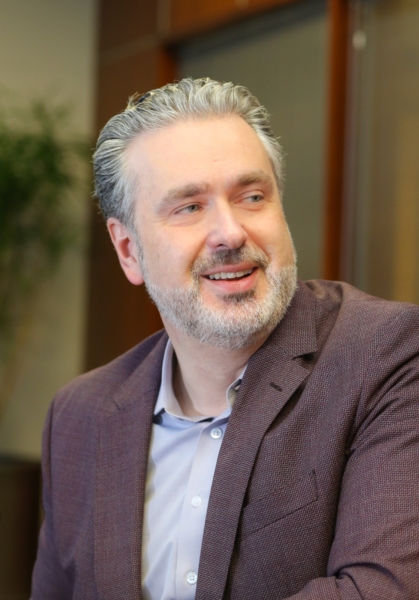
“From the first company and the launch of the first air brake, to the third axis technology, brought by my uncle, in the 70s, through joint ventures with partners in the 1980s and 1990s, to the large investments in technologies in recent years – we have always innovated.”
In practice, what does it mean to focus on the customer?
Firstly, relationship. It is also very important to understand what the customer wants. We stay close to the customer, at fairs, visits and with open doors. When we made the succession, in which I assumed the executive presidency and David, the chairman of the board, I asked for his help so that I could continue working with clients. It's the role that my father played, because, for the client, it is important to know who is the owner, the partner or the children of the founders of Randon who makes the trailer. For us, it is a source of pride. For the customer, it is important to have contact. Several customers call David or me when they have a problem or want a new product. Perhaps this is a result of our model of simplicity and always being open. Technologically, the products are getting very close. The difference continues to be, in my opinion, the relationship. The importance of the relationship will never decrease, on the contrary, it will only increase.
Does this company's random way of being come from the family?
The company is big, but it is not a corporation. My mother, I and my brothers make a point of family being close. In honors such as company time, 25, 35, 40 years, we are present. This is valuing people. Our eighth principle “We are all Randoncorp”, which previously was “Randon is all of us”, shows the detail of our way. It is a company that is becoming more and more professional, as professional governance is better, but the family, in important events, remains together.
Does professional management have an impact on the company's reputation?
Without a doubt, there are 16 thousand protagonists, 16 thousand families involved. I talk a lot at the family council about the need to have the best people in the company so that, first, they preserve people's jobs and, second, they continue to grow and bring new business opportunities. Today, we no longer compete only within the country. We are competing with foreign products, with the world. So, we have to look for the best professionals to continue the legacy, the history of the company. It's that thing: it's good to still have the owner's perspective, looking at the long term, but it's important to have executives who add value in terms of revenue growth and business opportunities. These people, whether from inside or outside, are professionals who contribute a new perspective and more comprehensive knowledge of other countries and other cultures.
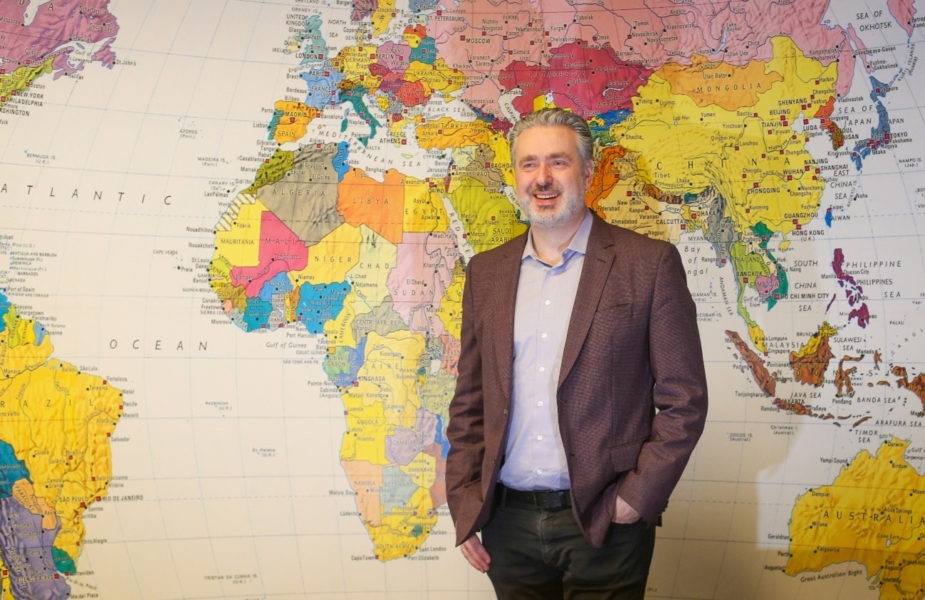
Randoncorp is a Brazilian multinational with a presence in 120 countries. How to take the organization's reputation to such different markets?
During the pandemic, we saw how leadership can have direct conversations online. Furthermore, in the case of a unit abroad, for example, groups from here are sent to the location to present the principles, values and role of each organization and also to learn, as we respect the local culture. Diversity enriches, because there is a Randon way, but it is a way that increasingly adapts to current times. This will maintain the values and principles.
Considering the global scenario and, especially in Brazil, what are your expectations for 2024? What are the main challenges and opportunities that arise?
The world is still experiencing a complex situation in relation to the geopolitical scenario, and the expectation is for a downturn in the global economy. However, the fact that Brazil anticipated the cycle of falling interest rates, helping to contain inflation, also opens up investment opportunities in the country. Fiscal balance and the continuity of reforms, such as taxation and its rapid implementation, are fundamental to paving the way for this more promising environment for business. Furthermore, Brazil has many resources to advance on issues of global impact and needs to act concretely in this direction. In areas such as the environment, for example, the difference is an energy matrix from an important and competitive renewable source. I do not deal here with the still controversial issues surrounding technology and artificial intelligence, for example, which bring risks, but many opportunities and will come with new features throughout the year. Nor the municipal elections, which impose some unpredictability on the scenario. Considering all this, I believe that 2024 will be a good year, but still challenging.
Christianne Schmitt is editor of Reputation Feed
Christianne.schmitt@ankreputation.com.br



